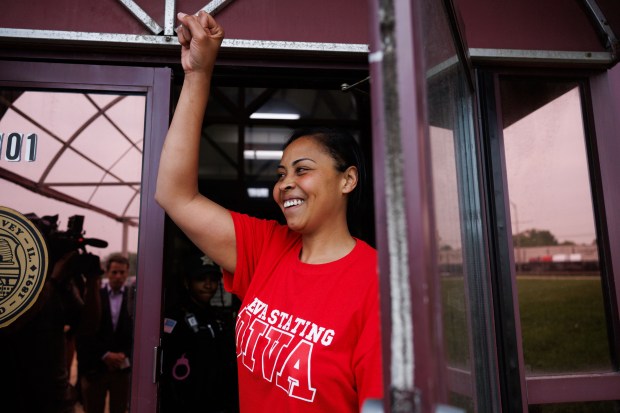A former warehouse coordinator for Augusta National Golf Club in Georgia is set to plead guilty next month in federal court in Chicago to charges he stole millions of dollars in Masters Tournament memorabilia over a 13-year period and transported it to Florida for resale, court records show.
Richard Brendan Globensky, 39, of Augusta, Georgia, was charged with in a one-page criminal information filed Tuesday with transporting stolen goods across state lines.
U.S. District Judge Sharon Johnson Coleman on Wednesday set Globensky’s arraignment and guilty plea for the same day, May 15, according to court records.
Globensky’s Atlanta-based attorney, Thomas Church, has not responded to emails and phone calls seeking comment.
The charges allege that between 2009 and 2022, Globensky moved “millions of dollars’ worth of Masters golf tournament merchandise and historical memorabilia” taken from Augusta National “and transported to Tampa, Florida, knowing the same had been stolen, converted and taken by fraud.”
No further details were provided about what became of the allegedly stolen merchandise, or whether any of the club’s vaunted green jackets were part of the theft. The Chicago connection also was not immediately disclosed.
Globensky had worked for years as the warehouse coordinator at Augusta National, overseeing all sorts of the private, for-for profit club’s Masters memorabilia, a source with knowledge of the case said.
Records show Globensky currently works as a mortgage broker. In an online bio for his finance company, Globensky, using “Brendan” as his first name, said he spent 14 years at Augusta National “mastering the art of hard work, customer service, and cultivating relationships.”
“Much like a small town, Brendan creates an authentic atmosphere where people feel welcome and comfortable,” the biography states. “He strives to exceed expectations at every opportunity given. During his time away from the office Brendan enjoys traveling with his family, golfing, and watching the game.”
Real estate records show Globensky and his wife sold their lavish home in nearby Evans, Georgia, for just over $2 million last year, a year after the alleged scheme ended. The six-bedroom, 7,300-square-foot home featured an in-ground pool and outdoor putting green.
The charges were filed Tuesday, just days after Augusta hosted the 88th annual Masters Tournament, ending with Scottie Scheffler winning his second green jacket.
Augusta National was founded by Bobby Jones and Clifford Roberts in 1932 and has hosted the Masters since 1934. The club is notoriously strict with its rules and is known to ban scofflaws for infractions such as running on the course or using a cellphone.
Augusta is also very protective of official memorabilia, particularly the prized green jacket, which it began awarding to Masters champions in 1949.
In 2013, the club sued a Texas auction house that was attempting to sell a green jacket allegedly stolen from Art Wall after he won the 1959 Masters, according to news reports. The complaint stated that an internal investigation had shown three employees were responsible for the theft of Wall’s jacket as well as other items of value from the Augusta grounds.
In a similar lawsuit four years later, Augusta National accused a Florida auction house of advertising the sale of the green jacket awarded to Byron Nelson in 1966, years after his 1937 and 1942 Masters wins, court records show. That jacket had last been inventoried in storage at the club in 2009 but the complaint stated it was unclear how the jacket wound up on the auction block.
According to the suit, the green jacket is “probably the most coveted award in the golfing world” and remains the property of the club. The winner is allowed to remove the jacket from the Augusta National grounds only within a year of winning it, according to the lawsuit. Afterward, the jacket must be stored on the club’s premises and can only be used during the Masters tournament.
Both lawsuits were eventually settled, court records show.
jmeisner@chicagotribune.com



